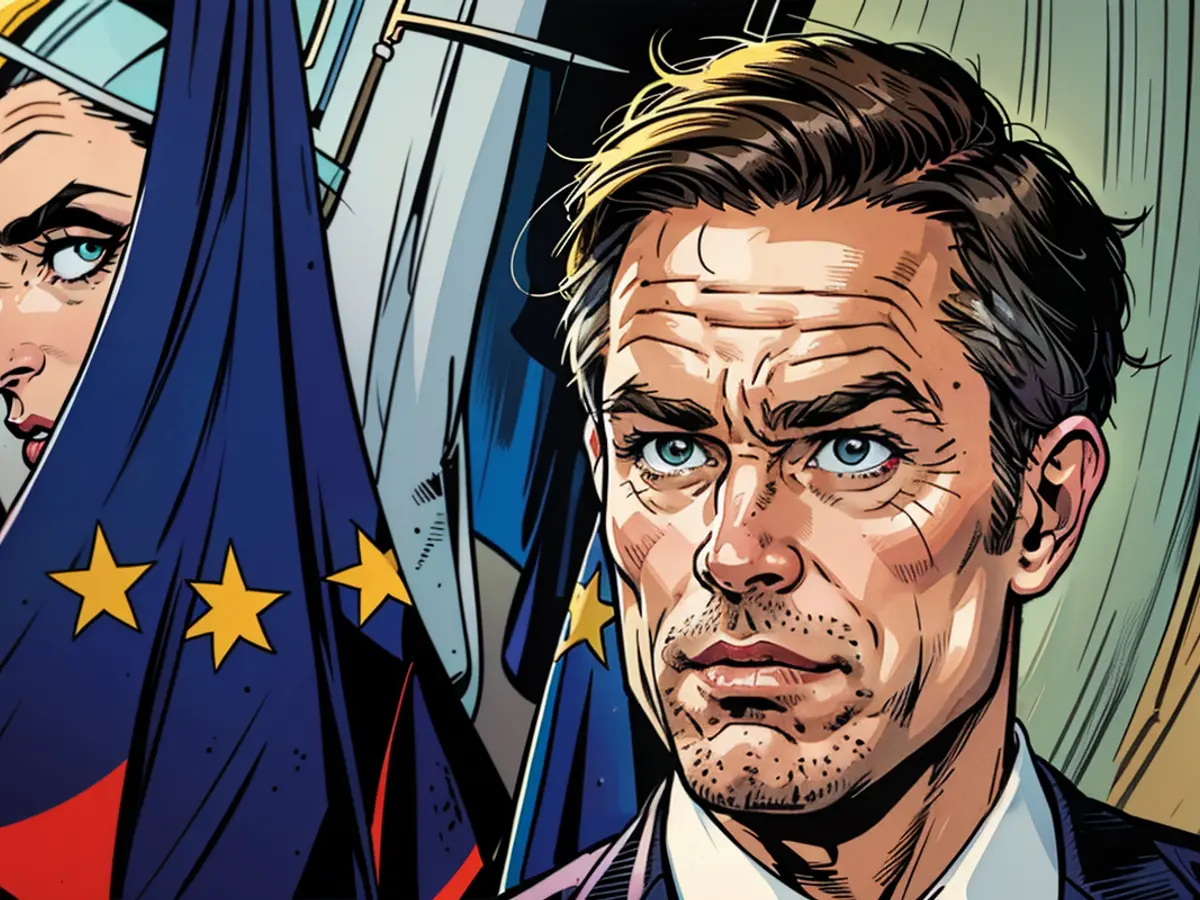Defense alliance - Dutchman Mark Rutte becomes the next Secretary General of NATO
Dutch outgoing Prime Minister Mark Rutte has officially been appointed as the next Secretary General of NATO. The 57-year-old is set to take over from Norwegian Jens Stoltenberg in early October, as the alliance announced after a meeting of the permanent representatives of the 32 NATO countries in Brussels. Stoltenberg (65) will have served for ten years in the top post.
Stoltenberg welcomed the personnel decision: "I am very pleased that the NATO allies have chosen Mark Rutte as my successor. Mark is a true Transatlanticist, a strong leadership personality, and someone who builds consensus." He wished him much success and knew he was handing over the NATO to capable hands.
Mark Rutte's 14-year tenure as Prime Minister
The Rutte treaty initially runs for a term of four years. The Dutchman is considered an experienced foreign policy expert. He was the Prime Minister of the Netherlands for nearly 14 years, longer than anyone before him and one of the longest-serving in the EU.
The main responsibility of the NATO Secretary General is to coordinate the political decision-making processes among the Allies and ensure that a consensus is reached, even on difficult issues. Given that he can also make proposals, he plays a crucial role in times of crisis or conflict. Additionally, the Secretary General represents NATO on the international stage and leads the Nato Headquarters as the highest administrative official.
The War and the Trump Scenario
A particularly significant challenge for Rutte's new role could be if there is a return of Donald Trump to the White House after the US Presidential election in November. Trump's past statements have raised doubts about whether the US would remain fully committed to supporting its allies under his leadership. During his tenure from 2017 to 2021, Trump frequently criticized the perceived low defense spending of European allies and even threatened to withdraw the US from the alliance.
Even if it doesn't come to a Trump re-election, Rutte will still face significant pressure. This is mainly due to the fact that Russia's war against Ukraine has significantly changed the security environment, but the Allies are not united on whether Ukraine should be given a clear perspective for NATO membership in these times or not. Countries like Germany and the US are against it, fearing that such a step could encourage Russia to escalate its war even further. Countries like Poland or the Baltic states see the risk differently.
Long-standing blockade by Hungary and Romania
The appointment of Rutte was preceded by a months-long blockade of the personnel issue by member states like Hungary and Romania. They only gave up their resistance against the Dutchman in the past week, paving the way for the necessary consensus in the North Atlantic Council.
Hungary led the way after Rutte gave in to Hungarian demands. The issue at hand included Hungary's desire to ensure it would not be pressured into participating in a planned NATO mission for coordinating weapons deliveries to Ukraine. The Orban government fears the alliance could be driven into a direct confrontation with Russia through the project. Klaus Iohannis, the Romanian president, was himself a candidate for the position. However, he officially withdrew his bid following Orban's decision.
Scholz supported Rutte
German Chancellor Olaf Scholz had already publicly supported Rutte in February. The Netherlands also received backing from the US and the UK at the time.
The prospect of Iohannis' unsuccessful candidacy was attributed to uncertainty about his professional future in alliance circles. It was speculated that Iohannis was primarily interested in securing another international leadership position as an alternative. Iohannis' second term as Romanian president ends in the fall, and he cannot run for the office again in Romania.
Stoltenberg treaty runs until October 1st
The current contract of the incumbent NATO Secretary-General Stoltenberg runs until October 1st. Stoltenberg, who is 65 years old, had previously announced his intention to resign. However, attempts by member states to agree on a successor failed during the summer. Potential candidates for the succession of Stoltenberg included the Danish Prime Minister Mette Frederiksen and the former British Defence Minister Ben Wallace. In the history of the alliance, Stoltenberg is now the second-longest serving Secretary-General. The longest-serving top international official of the Alliance was the Dutchman Joseph Luns, who served from 1971 to 1984.
Breaking news: Mark Rutte, the outgoing Prime Minister of the Netherlands, is set to replace Jens Stoltenberg as the NATO Secretary General in early October. Stoltenberg, who served for ten years in the post, welcomed the personnel decision, stating that Rutte's experience and strong leadership qualities would serve NATO well, particularly during challenging times such as the potential return of Donald Trump to the White House.
During his near 14-year tenure as Prime Minister, Rutte has proven himself to be an experienced foreign policy expert. As the next NATO Secretary General, he will coordinate political decision-making among the Allies, play a crucial role in times of crisis or conflict, and represent NATO on the international stage. However, his tenure may be marked by the ongoing debate over whether Ukraine should be given a clear perspective for NATO membership, a divisive issue among the Allies.








